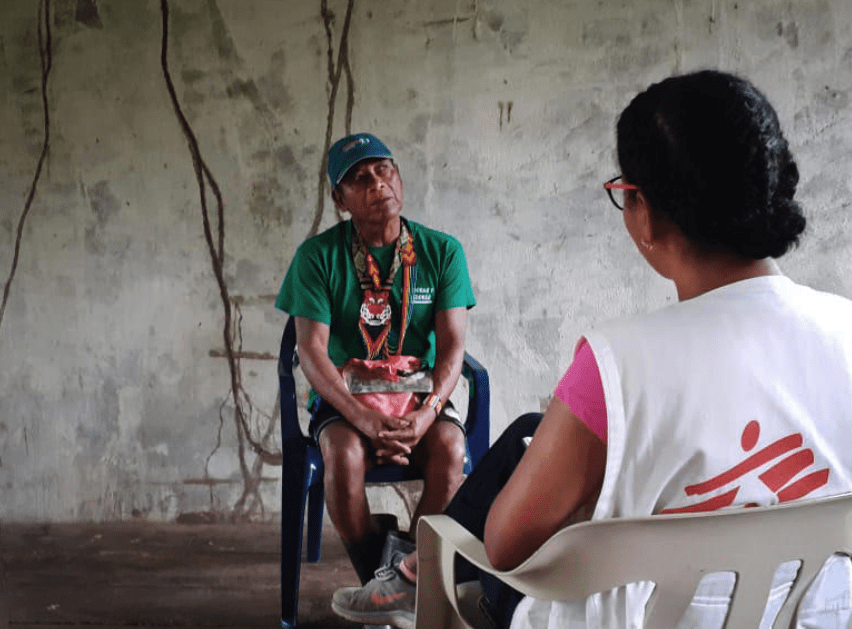Escalating conflict between armed groups in the rural Roberto Payán municipality, in western Colombia’s Nariño department, has forced more than 1,500 people to flee their homes. People from the Unión de Cuenca community council area are now living in unacceptable conditions in schools and other buildings, which are not equipped to safely house them. Doctors Without Borders/Médecins Sans Frontières (MSF) calls on regional and national authorities to immediately increase protection for these people and many others in the area who have been repeatedly impacted by violence in recent months.
On May 13, MSF launched a project in Roberto Payán to address some of the needs of the community. Our team found that many of those displaced were experiencing mental health issues. The trauma of their displacement has been compounded by food shortages; a lack of personal hygiene items; and overcrowded, unsanitary living conditions in makeshift shelters.
“Most people are only getting two meals a day,” said Alejandrina Camargo, MSF medical activities manager in Nariño. “The lack of space, mattresses, and blankets means that many are sleeping outside during the rainy season. All this causes people stress and anguish, so in addition to the medical response, we have focused our activities on providing coping tools that can help them in these difficult circumstances.”
Despite the urgent needs, the response from official entities has been insufficient. Unnecessary delays in food management have jeopardized food security. Not enough is being done to address the needs of the high number of unaccompanied minors and children being cared for by their siblings.
“Unfortunately, population displacements due to the conflict have become more frequent in Roberto Payán and the surrounding municipalities in recent months,” said Camargo. “This is not the first time that many of our patients have experienced something like this, and it negatively affects their physical and mental health.”
Humanitarian institutions and agencies must ensure the timely and sufficient deployment of aid and better preparedness for future emergencies. MSF, which was founded on the principles of neutrality, impartiality, and independence, reiterates that all parties involved in the conflict must guarantee the safety of those providing emergency medical services.





